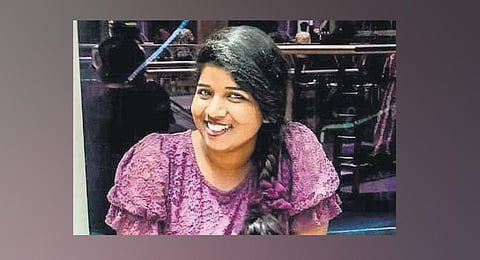

IDUKKI: The Muthuvans of Edamalakkudy are one of the more vulnerable tribal populations in the state. Perhaps it’s because they are so isolated from the rest of the world that the community -- numbering some 2,236 -- has held on to long-held traditions, which may seem abhorrent to outsiders.
It is against this backdrop that the journey of 29-year-old Suseela A, from a tradition-bound unchoyi (Muthuvan term of endearment for kids) to an atheist, was arduous. Her parents broke with tradition to ensure the dignity of their daughters and to live a life of progress. “I grew up as the youngest of three daughters of my parents, who were residents of Edamalakkudy. My grandfather was a popular warlock within the community,” recounts Suseela.
The remoteness of the settlement and lack of infrastructure facilities was a curse inhabitants had to live with. Her mother lost her first-born daughter as she was not taken to the faraway hospital in time during a complicated labour. To lift the curse and ensure the survival of future progeny, the parents decided to move to Susannakkudi -- a Muthuvan-inhabited settlement in Marayur.
“Apart from lack of infrastructure facilities, the age-old beliefs that revolve around community members have proved to be their greatest bane,” says Suseela. “A man or woman suffering from depression or anxiety would be labelled as demonically obsessed and treated by traditional quacks,” she said. Suseela herself suffers from anxiety and depression, something passed on from her parents.
She remembers when her elder sister was bitten by a snake and was treated with herbal medicine. “When my father realised that he would lose his daughter, he took her to a private hospital in Marayur, which ended up saving the life of my elder sister, who is married now.”
Her family decided to break with tradition and moved out of the settlement when her elder sister fell in love with a native of Bihar. “A Muthuvan can marry only a Muthuvan and an alliance outside the community will result in ostracisation,” says Suseela.
Her entire family, comprising three daughters, son and parents, left the settlement and moved into a rented house in Marayur. It was a welcome change as her father befriended members of the hill Pulaya communities, considered lower than Muthuvans in the tribal social hierarchy.
“From a life condemned to the forest, sleeping on cow-dung-plastered floors and eating anything that was available, we experienced new living, availed modern healthcare and enjoyed a social life,” she said. When her father, Alakar Swami, suffered a stroke two years ago, the family was able to immediately take him to a nearby hospital.
The changing trend
Suseela believes that although some traditions need to be preserved, certain customs of tribal communities reek of extreme human rights violations. Subhash Chandran, author of Edamalakkudy, the first book on the smallest tribal panchayat published in 2018, told TNIE that the increased use of Mala D contraceptive tablets among tribal inhabitants was because of menstrual taboos within their communities. “Children from a very young age start consuming the pill to avoid menstruation, which ultimately results in infertility. Middle-aged women after giving birth to two or three children also consume it to stop menstruating, which bars them from attending religious rituals,” he said.